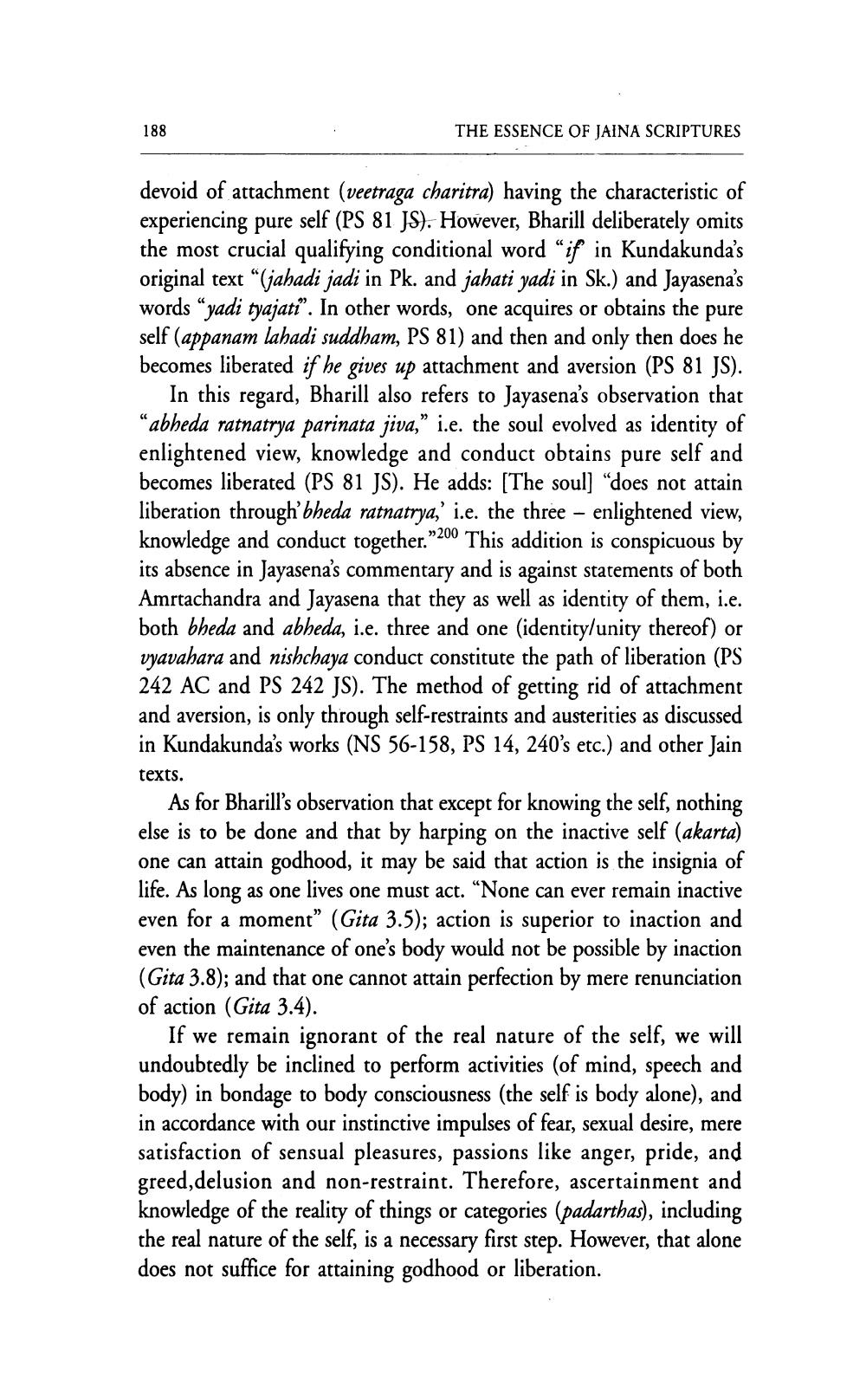________________
188
THE ESSENCE OF JAINA SCRIPTURES
devoid of attachment (veetraga charitra) having the characteristic of experiencing pure self (PS 81 JS). However, Bharill deliberately omits the most crucial qualifying conditional word “if in Kundakunda's original text “(jahadi jadi in Pk. and jahati yadi in Sk.) and Jayasena's words “yadi tyajati”. In other words, one acquires or obtains the pure self (appanam lahadi suddham, PS 81) and then and only then does he becomes liberated if he gives up attachment and aversion (PS 81 JS).
In this regard, Bharill also refers to Jayasena's observation that "abheda ratnatrya parinata jiva," i.e. the soul evolved as identity of enlightened view, knowledge and conduct obtains pure self and becomes liberated (PS 81 JS). He adds: [The soul] “does not attain liberation through' bheda ratnatrya,' i.e. the three – enlightened view, knowledge and conduct together.”200 This addition is conspicuous by its absence in Jayasena's commentary and is against statements of both Amrtachandra and Jayasena that they as well as identity of them, i.e. both bheda and abheda, i.e. three and one (identity/unity thereof) or vyavahara and nishchaya conduct constitute the path of liberation (PS 242 AC and PS 242 JS). The method of getting rid of attachment and aversion, is only through self-restraints and austerities as discussed in Kundakunda's works (NS 56-158, PS 14, 240's etc.) and other Jain texts.
As for Bharill's observation that except for knowing the self, nothing else is to be done and that by harping on the inactive self (akarta) one can attain godhood, it may be said that action is the insignia of life. As long as one lives one must act. “None can ever remain inactive even for a moment" (Gita 3.5); action is superior to inaction and even the maintenance of one's body would not be possible by inaction (Gita 3.8); and that one cannot attain perfection by mere renunciation of action (Gita 3.4).
If we remain ignorant of the real nature of the self, we will undoubtedly be inclined to perform activities (of mind, speech and body) in bondage to body consciousness (the self is body alone), and in accordance with our instinctive impulses of fear, sexual desire, mere satisfaction of sensual pleasures, passions like anger, pride, and greed, delusion and non-restraint. Therefore, ascertainment and knowledge of the reality of things or categories (padarthas), including the real nature of the self, is a necessary first step. However, that alone does not suffice for attaining godhood or liberation.




